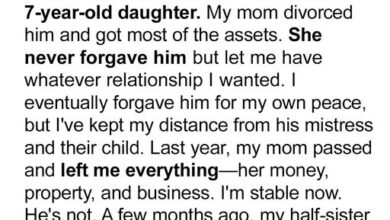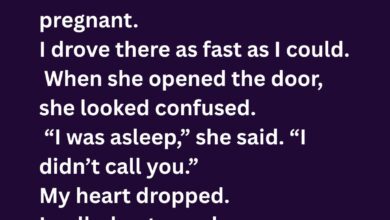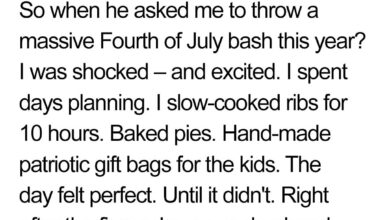The Sandwich Man’s Secret

At work, Paul always ate the same plain peanut butter sandwich—no drink, no snacks. We teased him, but he just smiled. Quiet, reliable, invisible.
When he quit, I helped clear his desk. In a drawer: a rubber-banded stack of children’s drawings. Crayon hearts, shaky words: Thank you Mr. Paul. A stick-figure Paul handing sandwiches to tear-streaked kids. One bubble: I’m not hungry today.
No family photos, no kid stories—ever. Curiosity won. I asked. He said, “West End Library, 6 p.m. Come see.”
I went. There was Paul in his brown jacket, cooler in hand, giving brown-bag lunches to a quiet line of rough-edged kids. Fifteen of them. Waiting.
“Most don’t get dinner,” he said. “Some have no home. One reliable meal—that’s all.”
He’d made them daily, from his own pocket. Same sandwich. “Best part of their day,” kids said.
I started helping. Mornings at his sparse apartment: bread, peanut butter, jelly. Silence, then truth—he’d grown up in foster care, often hungry. These sandwiches fed the boy he’d been.
One day, he collapsed. Heart. Hospital called me—his only emergency contact. “Keep it going,” he whispered.
I did. Coworkers joined: snacks, fruit, juice. Friday preps in the break room. Stickers: caped sandwiches.
Paul returned—not to the office, but full-time to the kids. Started “One Meal Ahead” with his savings. “Just stay one meal ahead of the worst day,” he said.
Years later, kids still come. Some grown. They remember Mr. Sandwich Man.
We mocked his lunch once. Now we know: quiet kindness can save lives.
Never judge the plain sandwich. Behind it might beat the biggest heart in the room.




